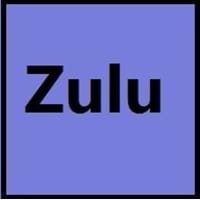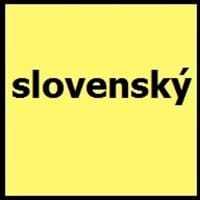Countries
South Africa
Czech Republic, European Union, Serbia, Slovakia
National Language
South Africa
Slovakia, Vojvodina, Serbia
Second Language
Botswana, Lesotho, Malawi, Mozambique, Swaziland, Zimbabwe
Not spoken in any of the countries
Speaking Continents
Africa
Europe
Minority Language
Not spoken in any of the countries
Czech Republic, Hungary, Russia, Ukraine
Regulated By
Pan South African Language Board
Ministry of Culture of the Slovak Republic
Interesting Facts
- The meaning of word "Zulu" means "Sky"and Zulu was the name of the ancestor who founded the Zulu royal line in about 1670.
- Zulu language has many loanwords borrowed from Afrikaans and English Languages.
- Slovak language was written using Glagolitic Alphabets,in 1843.
- Until the end of 18th century, Slovak did not exist as written language.
Similar To
Xhosa Language
Czech Language
Derived From
Not Available
Czech-Slovak Language
Alphabets in
Zulu-Alphabets.jpg#200
Slovak-Alphabets.jpg#200
Writing Direction
Not Available
Left-To-Right, Horizontal
Thank You
Ngiyabonga
Ďakujem vám
How Are You?
unjani
Ako sa máte?
Good Night
okuhle ebusuku
Dobrú noc
Good Evening
okuhle kusihlwa
Dobrý večer
Good Afternoon
okuhle ntambama
Dobré popoludnie
Good Morning
okuhle ekuseni
Dobré ráno
Sorry
Ngiyaxolisa
Pardón!
I Love You
Ngiyakuthanda wena
Ľúbim Ťa
Excuse Me
Uxolo
Prepáčte!
Dialect 1
Qwabe
Eastern Slovak
Where They Speak
Gabon, South Africa
Abov, Saris, Spis, Zemplin
Dialect 2
central KwaZulu-Natal Zulu
Central Slovak
Where They Speak
Georgia, South Africa
Gemer, Hont, Liptov, Novohrad, Orava, Tekov, Turiec
Dialect 3
Ndebele
Western Slovak
Where They Speak
Zimbabwe
Kysuce, Nitra, Trencin, Trnava, Zahorie
Speaking Population
Not Available
Second Language Speakers
Not Available
Native Name
isiZulu
slovenčina
Alternative Names
Isizulu, Zunda
Slovakian, Slovencina
French Name
zoulou
slovaque
German Name
Zulu-Sprache
Slowakisch
Pronunciation
Not Available
Not Available
Ethnicity
Zulu people
Slovaks
Language Family
Niger-Congo Family
Indo-European Family
Subgroup
Benue-Congo
Slavic
Early Forms
urban Zulu
Proto-Slavic
Standard Forms
Deep Zulu
Slovak
Language Position
Not Available
Signed Forms
Not Available
Not Available
Scope
Individual
Individual
ISO 639 6
Not Available
Not Available
Glottocode
zulu1248
slov1269
Linguasphere
99-AUT-fg
53-AAA-db
Language Type
Living
Living
Language Linguistic Typology
Subject-Verb-Object
Subject-Verb-Object
Language Morphological Typology
Not Available
Synthetic
All Zulu and Slovak Dialects
Most languages have dialects where each dialect differ from other dialect with respect to grammar and vocabulary. Here you will get to know all Zulu and Slovak dialects. Various dialects of Zulu and Slovak language differ in their pronunciations and words. Dialects of Zulu are spoken in different Zulu Speaking Countries whereas Slovak Dialects are spoken in different Slovak speaking countries. Also the number of people speaking Zulu vs Slovak Dialects varies from few thousands to many millions. Some of the Zulu dialects include: Qwabe, central KwaZulu-Natal Zulu. Slovak dialects include: Eastern Slovak , Central Slovak. Also learn about dialects in South American Languages and North American Languages.
Zulu and Slovak Speaking population
Zulu and Slovak speaking population is one of the factors based on which Zulu and Slovak languages can be compared. The total count of Zulu and Slovak Speaking population in percentage is also given. The percentage of people speaking Zulu language is 0.16 % whereas the percentage of people speaking Slovak language is Not Available. When we compare the speaking population of any two languages we get to know which of two languages is more popular. Find more details about how many people speak Zulu and Slovak on Zulu vs Slovak where you will get native speakers, speaking population in percentage and native names.
Zulu and Slovak Language Codes
Zulu and Slovak language codes are used in those applications where using language names are tedious. Zulu and Slovak Language Codes include all the international language codes, glottocodes and linguasphere.





